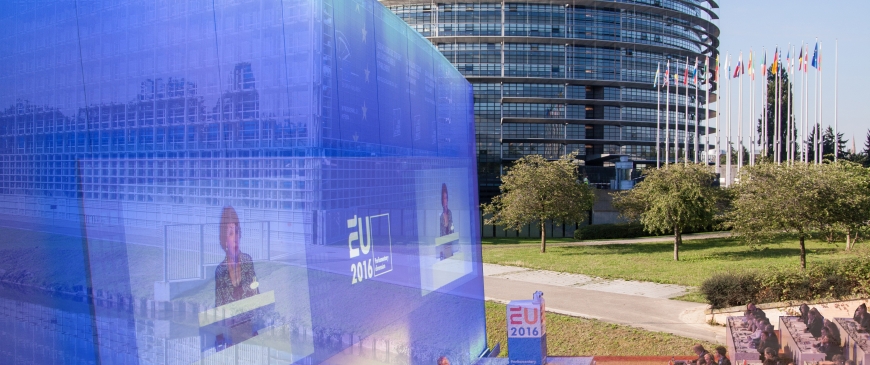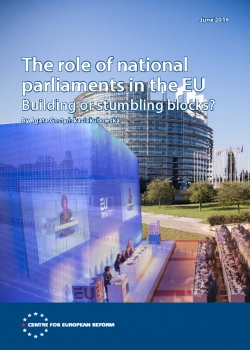
The role of national parliaments in the EU: Building or stumbling blocks?
- In his Bloomberg speech in 2013 David Cameron made a passionate case for a greater role for national parliaments in the EU. But in his renegotiation Cameron pushed for parliaments to have the right to block EU draft legislation – rather than ways for them to engage with EU policy-making in a constructive way.
- If Britain remains in the EU, parliaments will be able to show a so called ‘red card’ to Commission proposals that violate the subsidiarity principle. The Council of Ministers would then scupper the proposal unless parliaments’ concerns were addressed.
- Parliaments are unlikely to take advantage of the powers Cameron has won for them. They have rarely managed to club together to use the existing ‘yellow’ and ‘orange’ cards, which force the Commission to reconsider a proposal.
- If Britain remains in the EU David Cameron should push for a more positive role for parliaments.
Here are eight proposals for Cameron – and other EU leaders – to consider: - Greater collaboration between MPs and MEPs. The European Parliament and national parliaments stand a greater chance of reducing the democratic deficit in the EU if they are on the same team.
- Joint initiatives of MPs and MEPs. National parliaments and the European Parliament could jointly call on the Commission to revise EU laws.
- Pursue the House of Lords' 'green card' proposal. When member-states next decide to revise the EU treaties, parliaments should be given a collective right to ask the Commission to put forward legislative proposals.
- Better use of the Conference of EU affairs committees. COSAC, which brings together MPs from EU affairs committees and MEPs, should regularly discuss the Commission's work programme and update MPs in all member-states on current and potential green, yellow and red card initiatives.
- Facilitate interaction between MPs and MEPs. The Dutch presidency – which has made inter-parliamentary deliberations more dynamic and interesting – should serve as an example for the British presidency in the second half of 2017.
- Video conferencing. MPs who find it difficult to combine parliamentary commitments with visits to Brussels should hold video conferences with their counterparts in the European Parliament.
- Greater publicity for inter-parliamentary co-operation. MPs and MEPs should disseminate their work to the public more effectively. Citizens should know that their MPs travel abroad to meet their counterparts in other member-states and in Brussels to discuss matters that are important to the public.
- Strengthen the COSAC secretariat. If other recommendations succeed in boosting collective parliamentary engagement in EU policy-making, parliaments should recruit extra staff to help them better co-ordinate efforts to influence the EU.
Copyright is held by the Centre for European Reform. You may not copy, reproduce, republish or circulate in any way the content from this publication except for your own personal and non-commercial use. Any other use requires the prior written permission of the Centre for European Reform.

